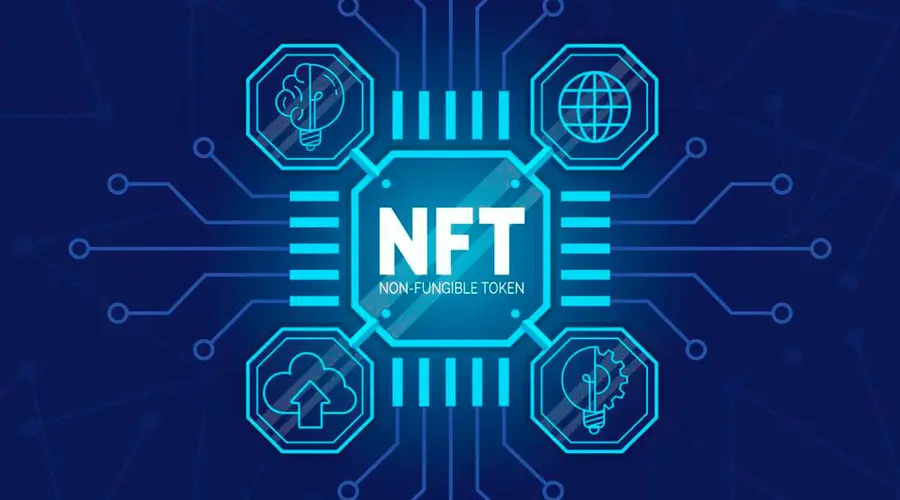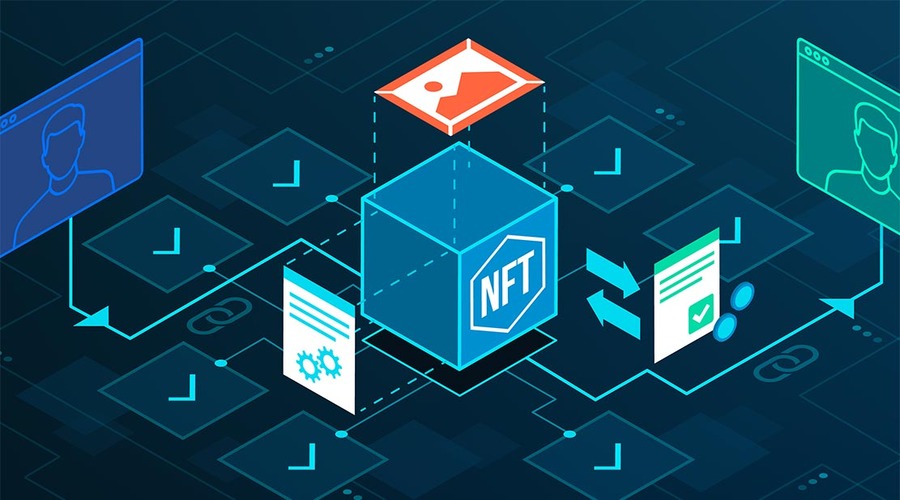NFTs for Fundraising and Charitable Initiatives

NFTs for Fundraising and Charitable Initiatives
In today’s digital age, Non-Fungible Tokens (NFTs) have gained significant attention and have emerged as a powerful tool for fundraising and supporting charitable initiatives. With their unique properties and ability to represent ownership of digital assets, NFTs offer a new and innovative way for organizations and individuals to raise funds while engaging their audience in a meaningful way. In this article, we will explore the potential of NFTs in fundraising and examine how they can be leveraged for charitable initiatives.
Introduction
In recent years, the popularity of NFTs has skyrocketed, revolutionizing various industries, including art, gaming, and collectibles. NFTs are digital tokens that utilize blockchain technology to establish provable ownership and authenticity of a particular digital asset. Unlike cryptocurrencies such as Bitcoin or Ethereum, NFTs are indivisible and unique, making each token distinct and valuable in its own right.
Understanding NFTs
To comprehend the significance of NFTs in fundraising and charitable initiatives, it’s crucial to understand their underlying principles. NFTs are built on blockchain technology, which provides a decentralized and transparent system for recording and verifying transactions. This technology ensures the authenticity and traceability of each NFT, giving confidence to buyers and collectors.
NFTs in Fundraising
One of the key advantages of NFTs in fundraising is their ability to create scarcity and exclusivity. By tokenizing unique digital assets such as artwork, music, or virtual items, organizations can offer limited edition NFTs to their supporters. These NFTs can be auctioned or sold, allowing individuals to contribute to the cause while acquiring a valuable and rare digital collectible.
Benefits of NFTs for Charitable Initiatives
NFTs bring several benefits to charitable initiatives. Firstly, they enable direct engagement with donors and supporters, fostering a sense of participation and ownership. NFT holders can proudly display their digital assets and share their involvement on social media platforms, spreading awareness about the cause. Additionally, NFTs can provide ongoing revenue streams through secondary market sales and royalties, allowing charities to generate sustained funds.
NFTs offer numerous benefits for charitable initiatives, revolutionizing the way organizations and individuals raise funds for important causes. Here are some key benefits of utilizing NFTs in charitable initiatives:
- Direct engagement: NFTs provide a unique opportunity for direct engagement with donors and supporters. By tokenizing digital assets, organizations can offer exclusive NFTs as a way for individuals to contribute to the cause and become part of a community.
- Scarcity and exclusivity: NFTs create scarcity and exclusivity by offering limited edition digital assets. This drives demand and allows organizations to generate additional funds by auctioning or selling these unique NFTs.
- Ongoing revenue streams: NFTs can provide ongoing revenue streams through secondary market sales and royalties. Organizations can earn a percentage of each subsequent sale, ensuring sustained funding for their charitable initiatives.
- Global reach: NFTs have a global reach, enabling individuals from anywhere in the world to participate in fundraising campaigns. This expands the potential donor base and increases the impact of charitable initiatives.
- Transparency and accountability: Blockchain technology ensures transparency and accountability in NFT transactions. Donors can verify the authenticity and trace the flow of funds, increasing trust and confidence in charitable organizations.
- Engaging younger generations: NFTs appeal to younger generations who are digitally native and interested in unique digital assets. By leveraging NFTs, organizations can engage a broader audience and cultivate a new generation of philanthropists.
- Promoting awareness: NFTs offer a platform for organizations to promote their cause and raise awareness. Supporters can proudly display their NFTs on social media, sparking conversations and spreading the word about the charitable initiatives they are involved in.
- Flexibility and creativity: NFTs allow for creativity in fundraising campaigns. Organizations can explore various digital assets, such as artwork, music, virtual experiences, or collectibles, to offer diverse and engaging opportunities for supporters to contribute.
- Efficiency and cost-effectiveness: Utilizing NFTs for fundraising can streamline the donation process and reduce administrative costs. Smart contracts automate transactions, eliminating the need for intermediaries and ensuring efficient distribution of funds.
- Collaborations and partnerships: NFTs open up opportunities for collaborations and partnerships with artists, creators, and influencers. These collaborations not only enhance the value and visibility of NFTs but also bring together diverse communities for a common cause.
- Preserving the legacy: NFTs provide a way to preserve the legacy of artists, creators, and philanthropists. By tokenizing their work or contributions, their impact can be immortalized and continue to generate support for charitable initiatives.
- Flexibility in donation amounts: NFTs offer flexibility in donation amounts. Supporters can choose the level of contribution that aligns with their budget and still receive a valuable digital asset in return, creating a win-win situation.
- Community building: NFTs foster a sense of community among supporters. Holding and showcasing NFTs creates a shared experience and connection, allowing individuals to connect with like-minded individuals who are passionate about the same cause.
- Innovation and differentiation: By embracing NFTs, charitable initiatives can demonstrate innovation and differentiate themselves from traditional fundraising methods. This can attract new supporters and increase the visibility and impact of their cause.
- Future-proof fundraising: NFTs represent the future of fundraising, aligning with the digital transformation that is taking place across various industries. By adopting NFTs early on, charitable initiatives can stay ahead of the curve and leverage the potential of this technology for long-term success.
Successful Examples of NFT Fundraising
Several organizations and individuals have already leveraged NFTs for successful fundraising campaigns. Artists have auctioned digital artwork as NFTs, with a portion of the proceeds going to charitable causes. Athletes and celebrities have also embraced NFTs, offering unique experiences or merchandise to their fans while supporting various charities. These examples demonstrate the immense potential of NFTs in raising substantial funds for philanthropic purposes.
Challenges and Considerations
While NFTs present exciting opportunities, there are also challenges and considerations to keep in mind. The environmental impact of blockchain technology used for NFTs has raised concerns, requiring sustainable solutions to mitigate carbon footprints. Additionally, the volatility of the NFT market and potential scams emphasize the need for due diligence and research before engaging in NFT fundraising.

How to Get Started with NFT Fundraising
Getting started with NFT fundraising requires careful planning and execution. Organizations should identify suitable digital assets to tokenize and establish partnerships with artists or creators. They must also choose the right NFT marketplace to host their fundraising campaign and engage with their audience effectively. Building a strong community and leveraging social media platforms are crucial for a successful NFT fundraising endeavor.
Tips for a Successful NFT Fundraising Campaign
To maximize the impact of an NFT fundraising campaign, consider the following tips:
- Collaborate with influential artists or creators to boost visibility and reach.
- Offer unique and exclusive digital assets to incentivize supporters.
- Engage with the community through regular updates, events, and interactions.
- Leverage social media platforms and influencers to amplify the campaign’s message.
- Ensure transparency by clearly communicating the allocation of funds and impact achieved.
NFTs and Transparency in Charitable Initiatives
Transparency and accountability are essential for maintaining trust in charitable initiatives. NFTs can contribute to this by providing transparent records of transactions and showcasing how funds are utilized. Blockchain technology ensures that every transaction is recorded immutably, allowing donors to trace the flow of funds and verify the impact of their contributions.
Impact of NFTs on the Charitable Sector
The integration of NFTs into the charitable sector has the potential to revolutionize traditional fundraising methods. It opens doors to global participation, allowing individuals from anywhere to support causes they resonate with. Furthermore, NFTs provide a new way to engage younger generations who are digitally native, creating a bridge between technology, art, and philanthropy.
Future Trends and Opportunities
As NFTs continue to evolve, new trends and opportunities are emerging. The integration of virtual reality (VR) and augmented reality (AR) with NFTs can enhance the user experience, creating immersive and interactive fundraising campaigns. Fractional ownership of NFTs can also enable broader participation, allowing individuals with smaller budgets to contribute and own a portion of a valuable digital asset.
Conclusion
NFTs have ushered in a new era for fundraising and charitable initiatives. By leveraging their unique properties, organizations and individuals can engage their audience in innovative ways while raising funds for important causes. The transparency and direct involvement offered by NFTs bring a refreshing perspective to philanthropy, ensuring that every contribution makes a tangible impact.
FAQs
1. Are NFTs only used in the art world for fundraising? No, NFTs have expanded beyond the art world. They are now used in various industries, including music, sports, and gaming, to support fundraising and charitable initiatives.
2. Can anyone create an NFT for fundraising? Yes, anyone can create an NFT for fundraising purposes. However, it’s important to consider the value and uniqueness of the digital asset being tokenized to attract potential buyers and supporters.
3. Are NFTs a sustainable option for fundraising? While the environmental impact of NFTs is a concern, there are ongoing efforts to develop more sustainable solutions, such as utilizing eco-friendly blockchains and offsetting carbon emissions.
4. How can I ensure transparency in my NFT fundraising campaign? Transparency can be ensured by providing clear information about the allocation of funds, showcasing the impact achieved, and leveraging blockchain technology to record and verify transactions.
5. What is the future potential of NFTs in fundraising? The future potential of NFTs in fundraising is vast. With advancements in technology and increased adoption, NFTs have the potential to revolutionize traditional fundraising methods and create new opportunities for philanthropic endeavors.








